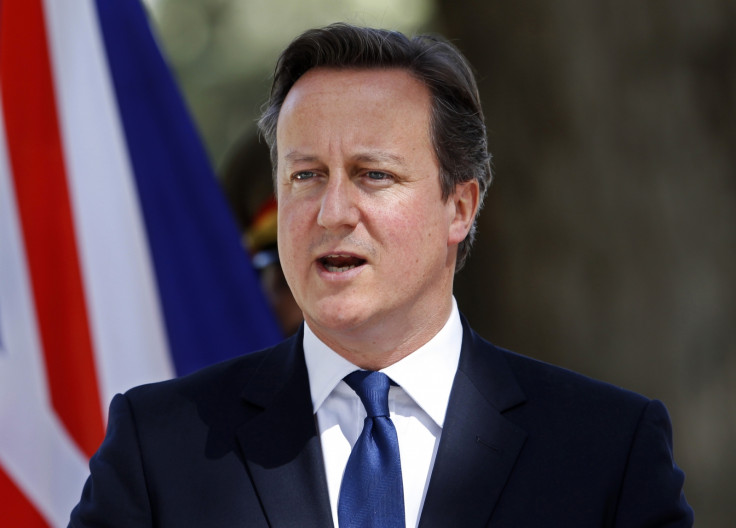David Cameron Unveils £130m Boost for Security Services to Foil 'Lone Wolf' Terror Attacks

The UK Prime Minister has given an extra £130m of funding to MI5, MI6 and GCHQ over two years in a bid to prevent "lone wolf" terror attacks.
David Cameron made the announcement after the Intelligence and Security Committee (ISC) published a report into the murder of Fusilier Lee Rigby.
The investigation found that the two murderers, Michael Adebolajo and Michael Adebowale, were known to intelligence services as part of seven different investigations.
Cameron said, in reaction to the report, that internet companies need to do more to make sure terrorists do not use their networks.
"Their networks are being used to plot murder and mayhem," he said.
"It is their social responsibility to act on this and we expect them to live up to their responsibility."
Cameron also praised intelligence officers who worked on the case in his statement to MPs in the House of Commons.
But the prime minister said that that UK will "learn lessons" from "delays and missed opportunities" to investigate Rigby's killers after the ISC said there was one piece of evidence that "could have been decisive" in preventing the attack.
However, the group of MPs said it was "highly unlikely" that it would have been found because of the difficulties of obtaining the data.
Cameron also said that he wants government to have powers to seize passports and relocate extremists.
The comments just days after Home Secretary Theresa May revealed that the UK security services have foiled 40 terror plots on Britain since the 7/7 London Bombings.
"The security services believe that, since the attacks on 7th July 2005, around 40 terrorist plots have been disrupted," May said.
The Conservative MP made the announcement during a speech outlining the government's plans to ban British-based insurance firms from covering the cost of terrorist ransoms.
The proposal, part of the Counter-Terrorism and Security Bill, is designed to improve the security services' ability to track and disrupt terrorists.
May also said that the government would introduce stronger powers against UK nationals fighting in Syria or Iraq after the country's terror threat level was raised from "substantial" to "severe" in response to conflicts earlier this year.
The home secretary hopes to fast-track the Counter-Terrorism and Security Bill through parliament.
"Our position is clear – ransom payments to terrorists are illegal under UK and international law. Agreeing to meet the demands of barbaric groups like the Islamic State [known as Isis] would only put many more lives at risk," May said.
"These measures will ensure the UK remains at the forefront of global efforts to put an end to the practice."
© Copyright IBTimes 2025. All rights reserved.






















